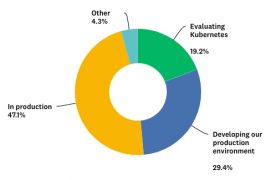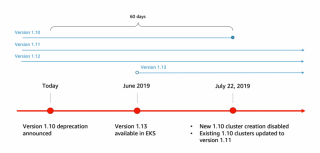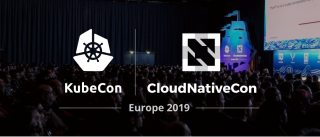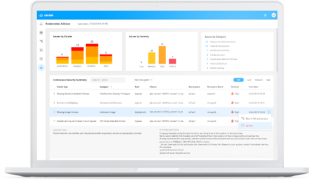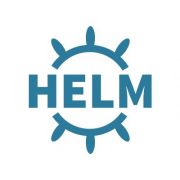Topic: kubernetes
ITOps Times news digest: Linkerd 2.3.1 and OneLogin Accelerate growth
The latest version of the Kubernetes service mesh Linkerd is now available. Version 2.3.1 features proxy stability improvements. A few of the improvements include changes to the proxy’s routing behavior, a new dispatch time limit to limit the amount of time that a request can be buffered, and various bug fixes. Full release notes are … continue reading
Report: Only half of organizations are currently deploying Kubernetes in production
Despite its seemingly large presence, Kubernetes may not be as widely adopted as it seems. Platform9 conducted a survey at KubeCon EU in Barcelona this month, speaking with over 500 attendees. Through the survey, the company said it was able to understand how companies are currently using Kubernetes. The survey revealed that despite the fact … continue reading
Instana announces support for On-Prem version of Google Kubernetes Engine (GKE)
Instana, the leading provider of automatic Application Performance Management (APM) solutions for microservice applications, today became the first APM solution provider to announce support for the On-Prem version of Google’s Kubernetes Engine (GKE), a part of the Google Cloud Platform (GCP). “Application teams need flexibility in their platform choices, especially as they implement and roll … continue reading
Amazon EKS updates its version life cycle for security purposes
In order to make Amazon EKS more reliable for users, Amazon is making changes to its version life cycle. For security purposes, it will be deprecating Kubernetes 1.10 on July 22, 2019. Kubernetes 1.13 will be available in EKS a month earlier, in June. In a blog post explaining the decision, Nathan Taber, senior product … continue reading
KubeCon EU: CircleCI’s new partnerships, DigitalOcean Kubernetes, and Gravity 6.0
KubeCon EU is happening this week in Barcelona, and many companies are using the event as an opportunity to release new enhancements to their products. Here are a few of the highlights: CircleCI announces new partnerships CircleCI has announced new partner integrations that will enable users to better manage applications in Kubernetes environments. New partnerships … continue reading
ITOps Times news digest: Syncsort Invent, Kublr’s VMware integration, and ACM Software System Award
Syncsort has launched a new initiative that will help enterprises shift to Next Wave infrastructures such as cloud and blockchain. Syncsort Invent will have five focuses: hybrid cloud, streaming, AI, blockchain, and data governance. It will initially focus on the intersection of legacy data systems with cloud and blockchain. Its hybrid cloud initiative will focus … continue reading
ITOps Times Open-Source Project of the Week: Rook
The Rook project hit a major milestone earlier this month when it released version 1.0. Rook provides storage orchestration for Kubernetes. According to its GitHub page, Rook provides “the platform, framework, and support for a diverse set of storage solutions to natively integrate with cloud-native environments.” Rook makes storage self-managing, self-scaling, and self-healing by automating … continue reading
Alcide Advisor checks for Kubernetes and Istio vulnerabilities
Security company Alcide has announced the release of Alcide Advisor, which is designed to scan Kubernetes and Istio for compliance, security, and government risks and vulnerabilities. According to Alcide, the solution empowers engineering teams to identify security risks before they can be introduced to the production environment. Alcide Advisor also scans throughout various stages of … continue reading
How Anthos will be a game-changer for your Kubernetes implementation
The recent announcement of Anthos by Google Cloud is a big move in managing hybrid cloud models. Google strengthens its position in the cloud space, where Azure and AWS are leading with a respectable margin. Anthos is an open-source platform that allows applications to run and migrate on-premises, in the Google Cloud and also with … continue reading
ITOps Times Open-Source Project of the Week: Prometheus
This week’s highlighted open-source project, Prometheus, provides monitoring and alerting for cloud native applications. The project’s main features include a multi-dimensional data model, a flexible query language, autonomous server nodes, and more. In addition, most of Prometheus’ projects are written in Go, which means that they can be easily deployed as static binaries, the Prometheus … continue reading
ITOps Times Open-Source Project of the Week: Helm
This week’s highlighted open-source project of the week helps users manage Kubernetes applications. Helm allows users to manage Kubernetes charts, which are “packages of pre-configured Kubernetes resources.” Helm Charts allow users to define, install, and upgrade Kubernetes applications. According to the Helm team, Charts are easy to create, version, share, and publish. According to Helm, … continue reading
GKE Advanced introduces enterprise-grade controls, automation, and flexibility
Kubernetes has seen a lot of adoption since Google first open-sourced it in 2014, but despite the suite of tools surrounding it, many organizations still feel overwhelmed at the thought of running Kubernetes on their own. Many companies turn to managed Kubernetes services for assistance, such as the Google Kubernetes Engine (GKE). In order to … continue reading


